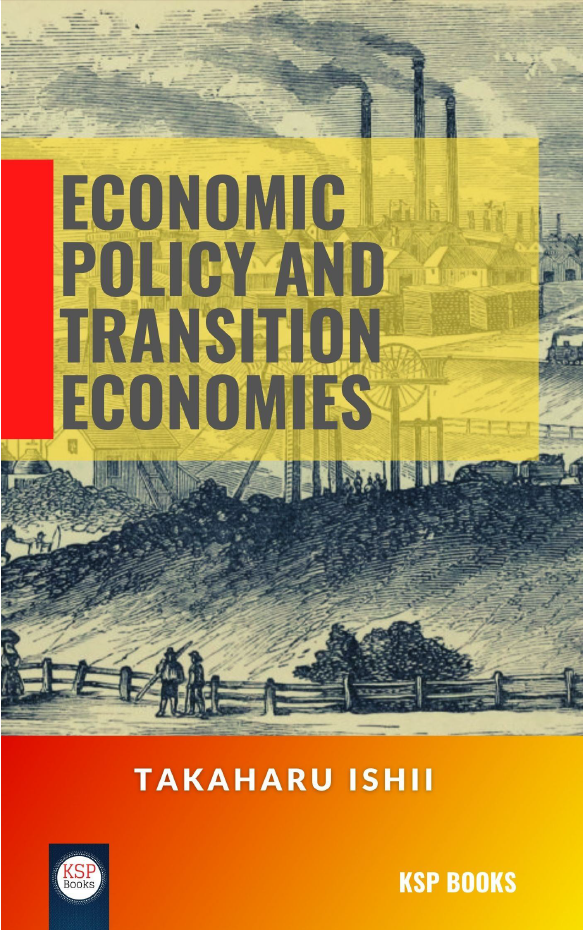We are experiencing a phase of profound restructuring of world capitalism. Several phenomena and developments lead us to observe a restructuring and crisis that take place upon the previous phase of globalization. In our view, the current global crisis is a socioeconomic “gameplay” of planetary reach, where the balanced and healthy reproduction of the past globalization is over. Moreover, we should notice that this theoretical approach cannot be a superficial or sporadic one but structural and systematic.
The main conceptual thread of this book argues that, in every substantial contemporary approach to globalization, we must understand the particular historical/evolutionary nature of the global socioeconomic space in its unity. We must examine together, in their dialectical adaptation and co-evolution, all the dynamic dimensions: economic, technological, social, and geopolitical.
In this context, the study of geo-economic and geopolitical dynamics in Southeastern Europe and Greece invites us to examine many partial dynamic dimensions. These dynamics unify the levels of spatial analysis (local, national, international, and global), competitiveness (articulated in micro-meso-macro level), and development (both in terms of firms, various sectors of economic activity, and business ecosystems).
The purpose of this volume—which is a collection of published articles by the “Stra.Tech.Man Lab” research team—is to present critical issues concerning the broader region of Southeastern Europe and how they are interrelated and influenced by the level of development of the Greek socioeconomic system. Exploring these studies collectively for the needs of the volume, we can see that the crisis of the Greek socioeconomic system is part of the overall problematic development of the region. In the background, the nations of Southeastern Europe seem to share common attributes and perspectives concerning their business, political, social, and cultural environment.
Moreover, this collection examines in detail the crisis and restructuring of the Greek socioeconomic system. In our view, it is clear that this crisis is neither accidental nor temporary. On the contrary, already from the beginning of the last decade, we started to realize that we are facing radical changes and new challenges, both internationally and within the Greek economy and society. Finally, these profound changes and challenges call for activating new types of evolutionary understanding and articulating new sets of policies at all levels. This repositioned perception and practice would preserve geopolitical security and enhance socioeconomic development in the region.
As a result, we think that this volume contributes to viewing contemporary problems identified in the region from multiple perspectives. It starts with and presents the specific Greek case while proposes economic policy solutions that can enhance the competitiveness of different socioeconomic systems in the Southeastern Europe region (strengthening innovation capacity, improving competitiveness, ameliorating geo-strategic decisions, and reinforcing local development procedures).
In particular, the volume contains five articles:
Development dynamics in Southeastern Europe: The challenge of the new paradigm of cooperation
The dynamics of globalization transform the evolutionary nature of capitalist phenomena structurally, at all levels. No enterprise or institution and sector of economic activity is cut off today from cross-sectoral relationships formed within the dynamics of globalization. As a result, there is an urgent need to create a new paradigm of strengthening the international relations of cooperation, especially in socio-economic systems and regions of the world that seem to be lagging in terms of competitiveness, such as the region of Southeastern Europe.
In this context, we argue that a prerequisite for a new paradigm of cooperation is to resolve how competitiveness unfolds in evolutionary terms within the globalized context. To this end, we suggest that the co-evolution of the socioeconomic space that hosts the activities of firms and the specific cross-sectoral structures that concern them generate the phenomenon of competitiveness. This evolutionary perception of competitiveness is the basis for understanding the cooperation-competition relations and the new paradigm of co-development that Southeastern European countries need to integrate to meet future challenges.
Search for competitiveness and entrepreneurial evolution in the global environment: An approach of development dynamics based on the Greek productive system
The Greek socioeconomic system, as well as systems of similar development (such as the Balkans), undergo a process of profound transformation, primarily due to the firms that survive and compete on their interior. In the age of globalization, different production systems appear to be developing organically since simultaneous global-local relationships influence them by transforming their structural characteristics. In globalization, which is a continuous and simultaneous dialectical process of homogenization and heterogeneity, we cannot examine validly any socioeconomic system in separation from one another.
In this context, the firms themselves exhibit organic characteristics, according to the way they articulate their strategy, technology, and management (Stra.Tech.Man synthesis). After studying the Greek case, we find that at the heart of the continuous transformation of the “physiology” of firms lies the way these firms think (philosophy) and act (processes). This conceptualization, which places the innovative business action at the center of the socioeconomic system, suggests that the overall level of development depends on the competitiveness of firms, primarily. In the case of Greece, it seems that “monad-centered” firms constitute the majority. These firms base their strategy on their instincts solely, make sporadic choices in their technology, and their management is attached to practical experience. Furthermore, these firms exhibit a relative weakness in generating innovation while giving the overall tone and rhythm to the relatively weak development of the Greek economic system. This finding can suggest and explain why Greece has entered into a developmental-evolutionary spiral of low competitiveness, which incubated the subsequent crisis for the entire national production system.
Energy security in the Balkans and the energy economy of Greece
This article focuses on the energy path that Balkan nations follow in recent years. Although the Balkans is an area of low energy significance, we emphasize in this artic le, through recent energy developments, the emerging geo-economic role that we expect from Balkans to play in the global energy policy chessboard. Moreover, the EU plays a vital role in the energy policy of the Balkan countries since it constitutes one of the largest importers of energy raw materials and is heavily dependent on hydrocarbon imports.
The Balkan region is an East-West and North-South intersection, where we encounter today various energy interests. Following the discovery of hydrocarbons in the eastern Mediterranean region, we present how existing and in-process gas pipelines intertwine with the broader strategy of the Balkan states, the EU, Russia, and the US. We argue that in order for Greece to achieve its energy safety goals, it must first increase its energy autonomy and improve cooperation with other Balkan states. In this way, Greece will be able to exert meaningful influence by intervening directly or indirectly in decisions regarding various implemented projects in this fragile region. Balkan crude oil and gas transportation networks are critical strategic drivers in the ongoing energy competition between the West and Russia.
The multiple perception of innovation: The case of micro and small enterprises in the Region of Eastern Macedonia and Thrace
This article aims to study the multiplicity in the perception of innovation, taking as a case study the Greek region of Eastern Macedonia and Thrace, which is one of the least developed regions in Greece and Europe. After presenting critical theoretical milestones in the conception of the innovation phenomenon, we analyze the findings of one qualitative field research we conducted in the region of Eastern Macedonia and Thrace on a sample of micro and small enterprises. What we find is a remarkable distance between the perception of innovation in these firms of the less-developed region and some of the fundamental characteristics of “best practices” of innovation provided in international literature.
Crisis and entrepreneurship in Greece: Present, past and evolving trends
The current phase of crisis and restructuring of globalization is transforming in-depth the entrepreneurship dynamics at all partial socioeconomic systems of the planet. A vital feature of this transformation is the competitiveness that different socioeconomic systems are capable of articulating, which depends primarily on the innovative potential of their firms.
After studying the case of the Greek crisis and the structural transformation of the Greek socioeconomic system during recent years, we try to identify how this crisis of entrepreneurship evolves. In the background, it seems that the morphology of the entire business ecosystem in Greece deals with severe competitiveness weaknesses. The analysis of the Greek firms in terms of their Stra.Tech.Man “physiology” contributes to this scientific dialogue, by also proposing policy solutions and recognizing a possible future outcome of the Greek entrepreneurship.
 This Book is completely open access. You can freely read, download and share with everyone.
This Book is completely open access. You can freely read, download and share with everyone. 
































